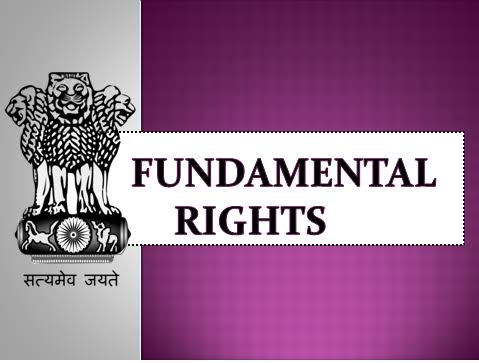Fundamental Rights of Indian Constitution
**Author:- Amisha Anil Pardeshi, a Student of D.Y. Patil University of Law, Nerul
What are Fundamental Rights?
Fundamental rights are the basic rights of people. These rights are mentioned in the Constitution of India. It is equally applied to all the citizens of India irrespective of their gender, religion, race, etc. The Drafting Committee prepared the First, Second, and Third Draft Constitutions, each containing fundamental rights, in February 1948, October 1948, and November 1949.The Fundamental Rights in India, outlined in Article 12-35 of the Constitution, ensure civil liberties for all Indians, promoting peace and harmony. These rights are essential for all-round development, covering material, intellectual, moral, and spiritual aspects, and are protected by the fundamental law of the land.
There are six fundamental rights of Indian Constitution along with the constitutional articles related to them are mentioned below:
1. Right to Equality (Article 14-18)
Article 14 of the Indian Constitution guarantees equality before the law and equal protection of the law within the territory of India, addressing the concepts of equality before the law and equal protection of the law.
Article 15 of the Indian Constitution prohibits discrimination based on religion, race, caste, gender, or place of birth, applying Article 14's principle of equality to specific situations.
Equal opportunity in government employment is guaranteed under Article 16, which forbids discrimination on the basis of religion, race, caste, sex, descent, place of birth, or domicile.
According to Article 17 of the Indian Constitution, "Untouchability" is outlawed and its practise is prohibited in all forms. Any impairment that results from "Untouchability" must be enforced, which is illegal and subject to legal penalties.
The Indian Constitution mentions the elimination of titles in Article 18. This Article forbade the acknowledgment and conferral of titles in our nation.
2. Right to Freedom (Article 19-22)
Article 19 (1) of the Indian Constitution guarantees six fundamental freedoms to every Indian citizen, including the freedom to form associations, settle anywhere, and engage in any occupation, trade, or business.
Whether a person is a citizen, a foreigner, or a legal person like a firm or corporation, Article 20 protects them against arbitrarily harsh punishment.
According to Article 21, the state has a duty to protect life. Protecting life is a responsibility of those in charge of the community's health, allowing for the protection of the innocent and the punishment of the guilty.
Protection against arrest and custody is covered under Article 22 of the Indian Constitution. It falls under the umbrella of the Constitution's fundamental rights.
3. Right against Exploitation (Article 23-24)
Article 23 forbids any form of exploitation. Forced labour is forbidden by the Constitution.
Article 24 of the Indian Constitution addresses the prohibition of employment of children in hazardous occupations or factories.
4. Right to Freedom of Religion (Article 25-28)
Article 25 guarantees the freedom of conscience, the freedom to profess, practice, and propagate religion to all citizens.
Article 26 ensures the autonomy and freedom of religious denominations in India to manage their own religious and charitable institutions and affairs, provided they do so within the limits of public order, morality, and health, and in accordance with the law.
Article 27 of the Constitution prohibits individuals from paying taxes for the promotion or maintenance of any religion or religious denomination.
Article 28 pertains to the prohibition of restraining religious instruction in state-assisted institutions.
5. Cultural and Educational Rights (Article 29-30)
Article 29 is intended to protect the interests of minority groups.
Article 30 states the Right of Minorities to Establish and Administer Educational Institutions.
6. Right to Constitutional Remedies (Article 32)
Article 32 of the Indian Constitution gives the right to individuals to move to the Supreme Court to seek justice when they feel that their right has been ‘unduly deprived’
Fundamental rights are always intended to uphold human dignity and foster conditions that allow each person to fully express his or her personality. On the fundamental framework of human rights, they interlace a pattern that is guaranteed. It establishes restrictions on the state, not on interfering with individual liberty in all of its forms. They are absolutely necessary for a person to reach their full intellectual, moral, and spiritual potential.




![Freedom of Speech in India [Indian Supreme court and Law of Sedition]](https://blogger.googleusercontent.com/img/a/AVvXsEiGLLUmLKq5Da6xDZplasOZHKRj-jOhWPkoeuy0_Eq757tUpOiHz-xooXwIlAjF0-hmBfi-TtMIv6on_sVgBXVq4wbWwnbsqLOcNX22S8C2aSq-ZuK3vn9wWAx8tXByYOBfwc0hs6b8RJV84YNFG2greouGKjup6g8kN-xVlchW33VHdSSmrhLC1BUEVbGp=w680)





